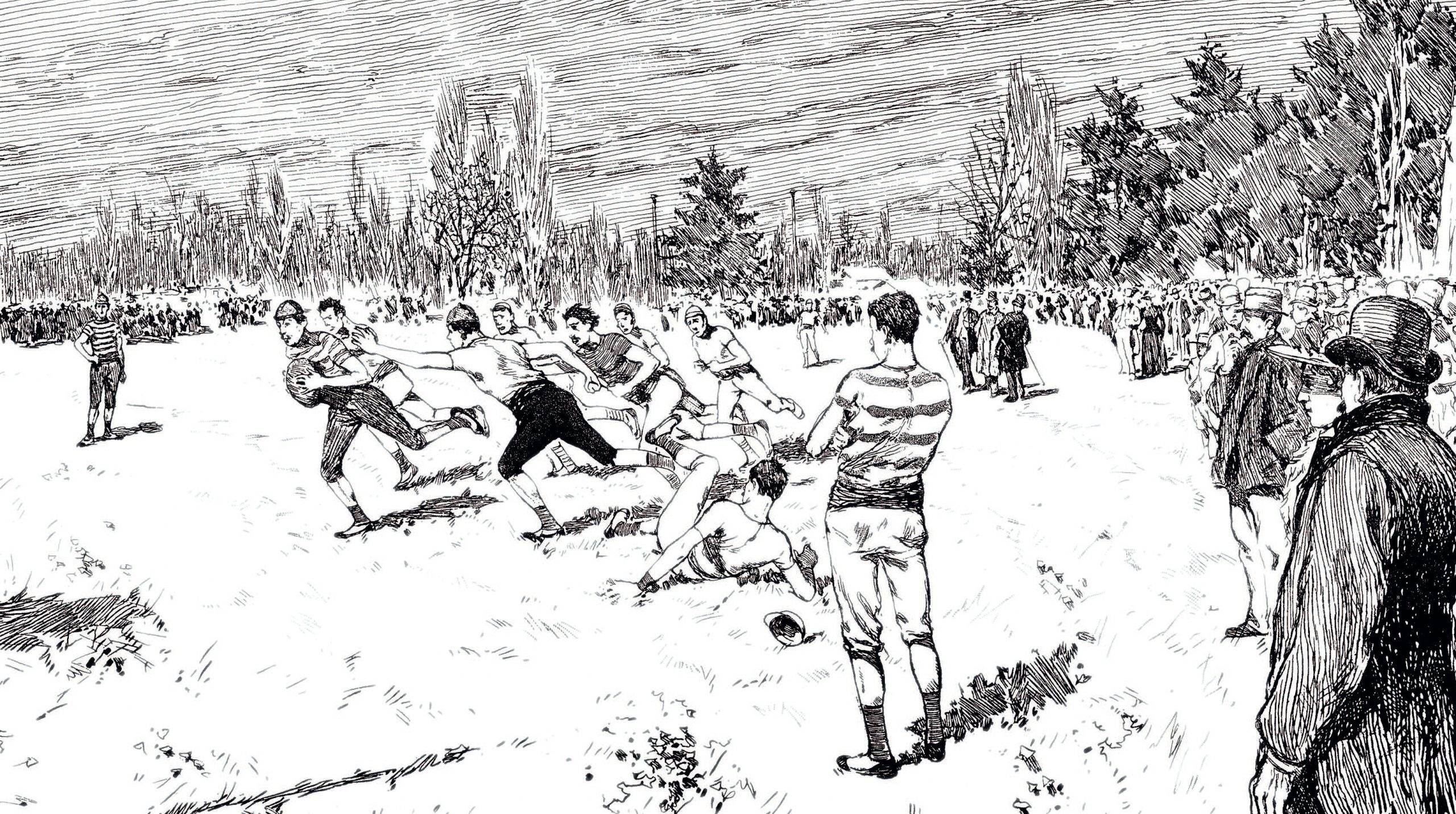
During the height of W. G. Grace’s fame, both association and rugby football were also under threat from the masses. Working-class teams from the northern cotton towns and Scotland were beginning to rival the public school amateur sides, even though professionals were officially banned. Football was gaining popularity among working men, and some even saw it as a fiendish upper-class plot to divert the masses from revolution. The Saturday half-day gave skilled labourers time to play and watch the game in the 1870s. Urbanisation and the consequent loss of space and traditional activities meant that limited sided team sports, played on smaller marked-out areas, allowed football to take root in the cramped industrial towns.
A pivotal point was the FA Cup Final of 1883 when Blackburn Olympic, consisting of working men, managed to reach the final and faced The Old Etonians. Hitherto the Cup had been dominated by gentleman amateur teams. The working-class Olympic players were physically smaller due to generations of poor diet when they faced their well-bred social superiors. Yet it was the northern underdogs who triumphed 2–1 and, in the following years, teams such as Blackburn Rovers and Preston North End became the strongest sides in the country.
Your organisation does not have access to this article.
Sign up today to give your students the edge they need to achieve their best grades with subject expertise
Subscribe




